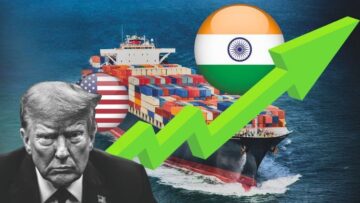
Following Washington and Beijing’s agreement to temporarily lower tariffs, US retailers, notably Walmart and a number of apparel companies, are vying for China-made goods for the key summer shopping season that begins in late May.
According to logistics company Portless, which assists US e-commerce brands in importing goods from China via air, orders and shipments for sundresses, bathing suits, clogs, and sunscreens from Chinese factories have resumed since the agreement on Monday to reduce US tariffs on shipments from China to 30 per cent from 145 per cent for the next three months.
Although orders for summer can begin in late winter or early spring to allow for the manufacturing of new designs, US businesses primarily rely on ocean shipping, which can take anywhere from 30 to 60 days for goods to arrive in the United States from China, depending on the destination and ship size, according to John Harmon, managing director of technology research at Coresight Research.
Usually, at least two to three months prior to the start of the summer season on Memorial Day, which this year occurs on 26th May, US stores and clothing firms start shipping goods from China. However, a number of American businesses halted their orders after US President Donald Trump imposed punitive and fentanyl taxes totalling 145 per cent on Beijing on 9th April. According to data given to TD Cowen by container tracking company Vizion, container bookings from China to the United States dropped by almost 50 per cent in the final week of April.
Freight charges haven’t increased yet, despite the hurry to get goods to the United States. According to statistics from freight booking and payments platform Freightos, the spot pricing for shipping a 40-foot (12-meter) container from China to the US West Coast increased 3 per cent week over week to US $ 2,395 on Monday, suggesting that companies were not overbooking shippers. This is half of the price in February, when many major players were scrambling to stockpile in anticipation of Trump’s anticipated tariff action.
US companies looking to stock up on summer items may benefit from Monday’s tariff reprieve, but the current rush may result in supply-chain bottlenecks, albeit probably not as bad as those that occurred during the 2021–2022 pandemic years.






